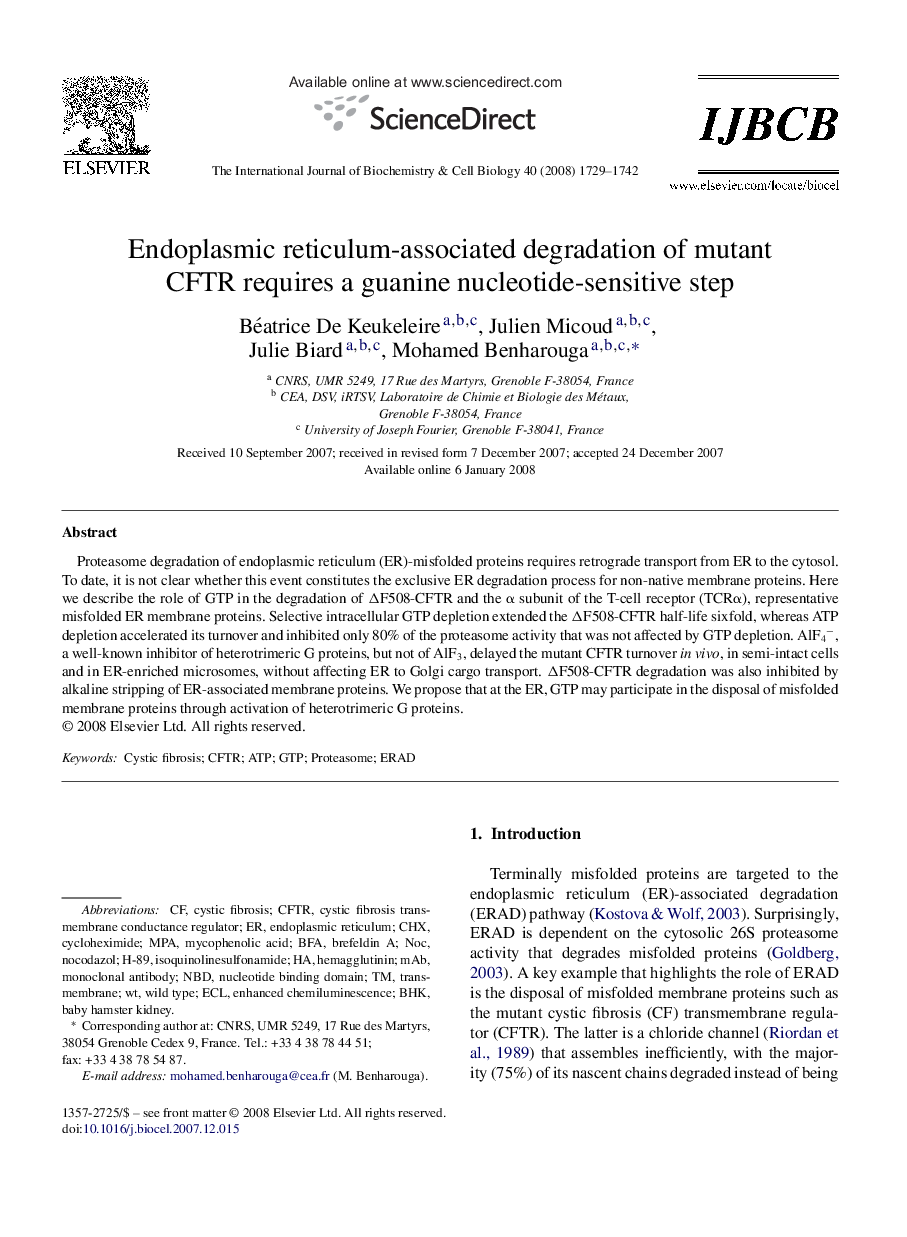| Article ID | Journal | Published Year | Pages | File Type |
|---|---|---|---|---|
| 1985243 | The International Journal of Biochemistry & Cell Biology | 2008 | 14 Pages |
Proteasome degradation of endoplasmic reticulum (ER)-misfolded proteins requires retrograde transport from ER to the cytosol. To date, it is not clear whether this event constitutes the exclusive ER degradation process for non-native membrane proteins. Here we describe the role of GTP in the degradation of ?F508-CFTR and the a subunit of the T-cell receptor (TCRa), representative misfolded ER membrane proteins. Selective intracellular GTP depletion extended the ?F508-CFTR half-life sixfold, whereas ATP depletion accelerated its turnover and inhibited only 80% of the proteasome activity that was not affected by GTP depletion. AlF4-, a well-known inhibitor of heterotrimeric G proteins, but not of AlF3, delayed the mutant CFTR turnover in vivo, in semi-intact cells and in ER-enriched microsomes, without affecting ER to Golgi cargo transport. ?F508-CFTR degradation was also inhibited by alkaline stripping of ER-associated membrane proteins. We propose that at the ER, GTP may participate in the disposal of misfolded membrane proteins through activation of heterotrimeric G proteins.
